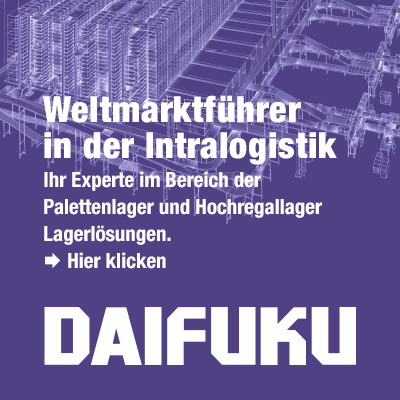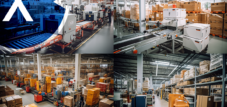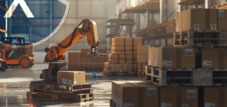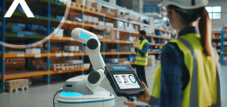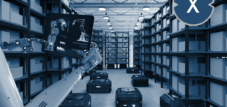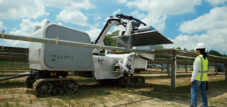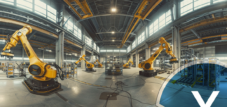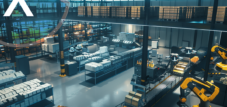Skilled labor shortage in food logistics: Robots are now also working in the central warehouse of the Kaufland supermarket chain
Language selection 📢
Published on: September 18, 2024 / Update from: September 18, 2024 - Author: Konrad Wolfenstein
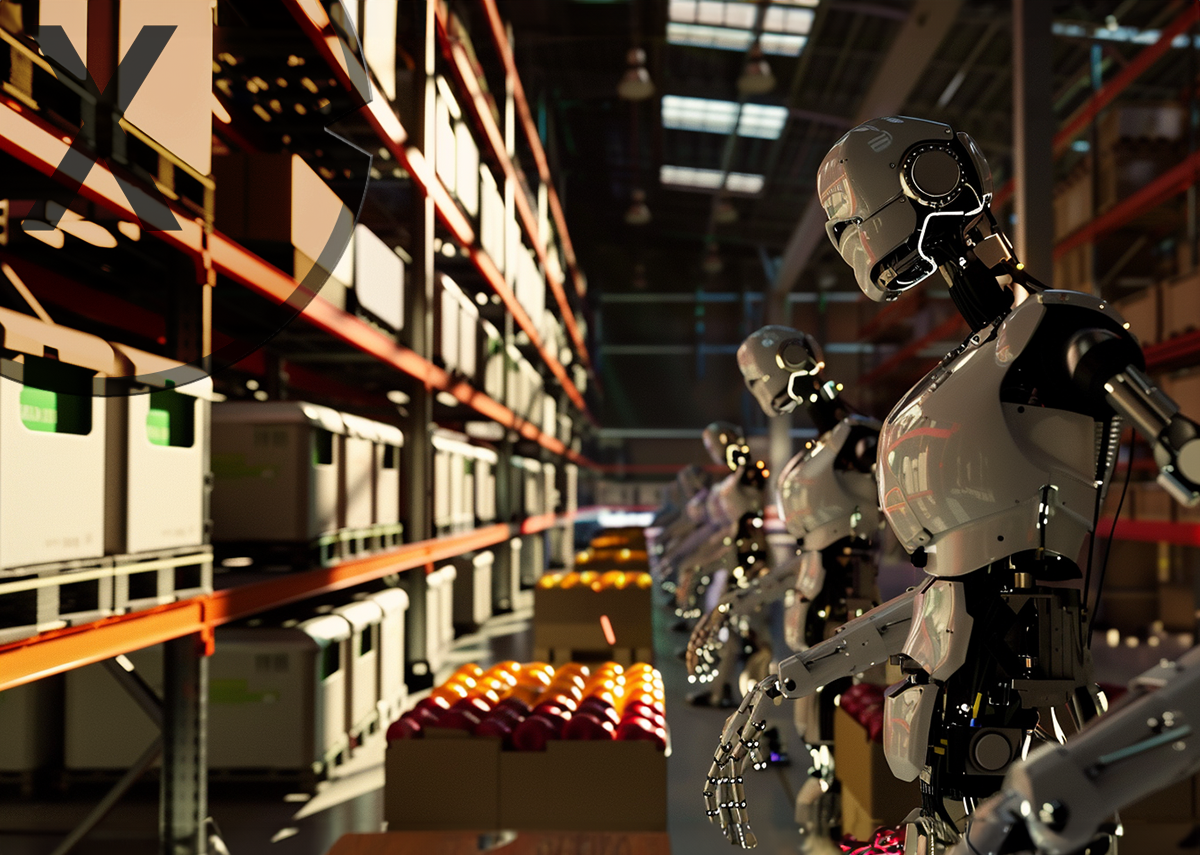
Shortage of skilled workers in food logistics: Robots in the central warehouse of a supermarket chain - creative image: Xpert.Digital
🤖🏭 First German supermarket chain relies on robot warehouse: fully automatic robots in use
🤖🚚 Technological change due to a shortage of skilled workers: supermarket chain relies on robots in logistics
German supermarket chain Kaufland has taken a significant step towards the future by becoming the first company of its kind in Germany to introduce robots in one of its central warehouses. As Bild writes , it is specifically a state-of-the-art, fully automated warehouse in Geisenfeld near Ingolstadt, which has been in operation since the end of 2023. There, robots are now taking over tasks that were previously carried out by humans, especially tasks that were previously carried out with forklifts. This introduction of robots marks not only a technical innovation but also a cultural shift in the logistics sector.
🌟 Automation in warehousing
Various technologies are used in Kaufland's new facility. Unmanned, remotely controlled vehicles transport goods such as juices, canned goods and wine through the warehouse. The automated guided vehicle systems (AGVs) are precise and efficient, they follow programmed routes to bring products quickly and safely to the desired storage locations. These systems are capable of moving thousands of products. In the initial phase of the project there were around 7,000 different items, but Kaufland has set the goal of increasing this number to 8,500.
In addition to the transport robots, gripper arms and conveyor belts are also used to ensure that products are sorted and packaged efficiently. These technologies enable the entire warehouse process to be handled smoothly and quickly. Automation should not only speed up work processes, but also reduce the error rate, since machines, unlike humans, are less susceptible to fatigue or concentration errors.
👩💻 New jobs instead of job cuts
Despite increasing automation, Kaufland emphasizes that this development is not intended to reduce jobs. On the contrary: the use of robots is intended to create more attractive jobs and at the same time alleviate the existing shortage of skilled workers. The new facility employs around 200 people who work in multiple shifts. However, your tasks have changed significantly due to automation. While the focus used to be on physically strenuous and monotonous activities, today's tasks are more varied and demanding.
Employees are now increasingly taking on tasks in monitoring and controlling the machines, maintaining and repairing the robots, and optimizing logistical processes. These activities require new skills and technical know-how, which means employees can benefit from automation in the long term. “We see automation as an opportunity to give our employees new, more demanding tasks,” says a Kaufland spokesman.
⚙️ Challenges and limitations
As with any pilot project, there are some challenges and limitations when automating Kaufland's central warehouse. One of the biggest hurdles is that not all types of goods are suitable for fully automated storage and processing. Products that have delicate packaging, such as fresh produce, meat or frozen items, are still processed in traditional warehouses. People remain indispensable here, as machines do not yet offer the necessary care and flexibility when handling such products.
In addition, the entire project is currently designed as a pilot project, which means that Kaufland is consciously expecting setbacks and the system must be continuously optimized. The technology is advanced, but in practice unforeseen problems can always arise - be it due to technical defects, unexpected workloads or software errors. However, such challenges are part of every innovation process, and Kaufland strives to improve the systems through continuous testing and adjustments.
📈 Trend towards automation in retail
Automation in retail is not a phenomenon limited to Kaufland or Germany. Large international retail chains are also increasingly relying on robots and automated systems to optimize their warehouse processes. A prominent example of this is Walmart in the USA, which has been increasingly relying on automation for several years to increase efficiency in its logistics centers. This development shows a clear trend: retail is moving towards automation to meet the growing demands of e-commerce, which requires fast and error-free logistics.
The efficiency gains achieved through the use of robots are enormous. Robots can work around the clock, they don't need breaks and are less prone to errors. This allows companies to save costs while increasing customer satisfaction as products are delivered faster and more reliably. In the long term, the competitive advantage for those companies that invest in automation early on will be significant.
📉 Impact on the labor market
Despite the benefits that automation brings, questions remain as to how this trend will impact the labor market in the long term. The fear that robots could replace human workers and thus lead to massive job losses is not unfounded. However, studies show that the effects of automation must be viewed in a differentiated manner. While some simple and repetitive tasks are indeed being replaced by machines, new jobs requiring higher skills are being created at the same time.
Kaufland is consciously taking the path of retraining and further training its employees in order to make the transition to an automated working world easier for them. This strategy could serve as a model because it shows that automation and job security do not have to be contradictory. Rather, technical development offers the opportunity to improve working conditions and open up new career prospects.
Another aspect that is important in this context is the increasing digitalization of the world of work. The ability to work with computer-based systems and operate technical devices will become increasingly important in the future. Companies that offer their employees the opportunity to further their training in these areas secure a long-term competitive advantage. At the same time, it will be essential for employees to develop their digital skills in order to be successful in an automated working world.
🔮 Future prospects
The introduction of robots and automated systems in the Kaufland warehouse is just the beginning of a development that will continue to gain in importance in the coming years. Experts assume that the level of automation will increase significantly in many industries, particularly in retail and logistics. Technological progress makes it possible for machines to take on increasingly complex tasks, which leads to even more efficient supply chains.
Kaufland has taken an important step in this direction with its pilot project in Geisenfeld. However, it remains to be seen how automation will prove itself in practice and what challenges still need to be overcome. However, one thing is certain: automation will permanently change the world of work - not just in retail, but in almost all industries. Anyone who recognizes this development early and adapts accordingly will benefit from it in the long term.
🔍 Challenges of the shortage of skilled workers and the increasing demands of customers
The automation in the Kaufland warehouse is a groundbreaking project that shows how the retail sector is responding to the challenges of a shortage of skilled workers and the increasing demands of customers. The use of robots and modern technologies not only increases efficiency, but also creates new, attractive jobs. At the same time, automation is a process that must be continuously optimized in order to be successful in the long term. Kaufland relies on a combination of technological progress and the qualification of its employees - an approach that could serve as a model for the entire industry.
📣 Similar topics
- 🤖 Automation in the warehouse: The future begins now!
- 🚚 Efficiency through technology: Robots in use
- 🏗️ State-of-the-art warehouse: robots take over
- 🤝 New jobs through automation
- 📈 Increased efficiency in retail through robots
- 💡 Innovation in warehousing: Automated systems
- 💼 The changing world of work: Robots create new perspectives
- 🧩 Challenges of warehouse automation
- 🔧 Employee qualification in the age of robots
- 🌐 International trends in warehouse automation
#️⃣ Hashtags: #automation #logistics #innovation #working world #technology
Xpert partner in warehouse planning and construction
We are there for you - advice - planning - implementation - project management
☑️ Smart City & Factory: Industry expert for energetic 5G buildings and halls as well as advice and installation of solar systems
☑️ Xpert.Plus - logistics consulting and logistics optimization
☑️ Industry expert, here with his own Xpert.Digital Industry Hub with over 2,500 specialist articles
I would be happy to serve as your personal advisor.
You can contact me by filling out the contact form below or simply call me on +49 89 89 674 804 (Munich) .
I'm looking forward to our joint project.
Xpert.Digital - Konrad Wolfenstein
Xpert.Digital is a hub for industry with a focus on digitalization, mechanical engineering, logistics/intralogistics and photovoltaics.
With our 360° business development solution, we support well-known companies from new business to after sales.
Market intelligence, smarketing, marketing automation, content development, PR, mail campaigns, personalized social media and lead nurturing are part of our digital tools.
You can find out more at: www.xpert.digital - www.xpert.solar - www.xpert.plus



